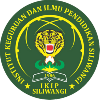POTENTIAL BENEFITS OF LEARNING ENGLISH USING LATEST APPLICATIONS AS LEARNING INNOVATIONS FOR STUDENTS ENGLISH PROFICIENCY
DOI:
https://doi.org/10.22460/project.v5i6.p1288-1297Abstract
Smartphone technological developments provide possibilities for various social media applications to play an important role in today’s society. TikTok has become a favorite among almost all Indonesians as one of the most recent popular social media applications. As a result, the TikTok application is advised to be used wisely in order to benefit and have a positive impact in the world of education. Previous research, explains the TikTok application’s limited use for learning activities, particularly English. Therefore, this study aims to explore the potential benefits of the TikTok application for learning English for students' English proficiency. This study uses a qualitative approach to find out the benefits of the TikTok application as an innovation in learning media. 16 English Language Education students at Singaperbangsa Karawang University voluntarily took part in a quantitative survey research, using an online questionnaire as a research instrument. The findings show that there are four potential benefits to using the TikTok. The benefits found include time and location savings, educational content on the TikTok application is very informative, content on the TikTok application is easy to understand when learning English, and TikTok content can grow and increase students in learning English. Furthermore, students stated that the TikTok application could be used for learning English in the classroom.
Â
Keywords:Â Tiktok Application, Learning English, Innovation Media
References
Gupta, S. (2018). Social networking usage questionnaire: Development and validation in an indian higher education context. Turkish Online Journal of Distance Education, 214-227. https://doi:10.17718/tojde.471918
Hayes, C., Stott, K., Lamb, K. J., & Hurst, G. A. (2020). “Making Every Second Countâ€: Utilizing TikTok and Systems Thinking to Facilitate Scientific Public Engagement and Contextualization of Chemistry at Home. Journal of Chemical Education, 97(10), 3858–3866. https://doi.org/10.1021/acs.jchemed.0c00511
Ismail, S., Zaim, M., & Mukhaiyar, M. (2019). Student Perspective in Using Social Media As a Tool in English Language Learning. Proceedings of the 1st International Conference on Innovation in Education (ICoIE 2018). https://doi.org/10.2991/icoie-18.2019.106
Literat, I. (2021). “Teachers act like We’re Robotsâ€: TIKTOK as a window into Youth experiences of online learning During COVID-19. AERA Open, 7, 233285842199553. https://doi:10.1177/2332858421995537
Martirosyan, N. M., Hwang, E., & Wanjohi, R. (2015). Impact of English proficiency on academic performance of international students. Journal of International Students, 5(1), 60-71. https://doi:10.32674/jis.v5i1.443
Md Yunus, M., Zakaria, S., & Suliman, A. (2019). The Potential Use of Social Media on Malaysian Primary Students to Improve Writing. International Journal of Education and Practice, 7(4), 450–458. https://doi.org/10.18488/journal.61.2019.74.450.458
Mishra, S. (2020, January 23). Importance of Tiktok Type videos for learning. https://www.col.org/news/col-blog/importance-tiktok-type-videos-learning#:~:text=Beyond%20the%20use%20of%20short,role%20in%20behavioural%20change%20communication.
Xu, L., Yan, X., & Zhang, Z. (2019). Research on the Causes of the “Tik Tok†App Becoming Popular and the Existing Problems. Journal of Advanced Management Science, 59–63. https://doi.org/10.18178/joams.7.2.59-63
Yang, H. (2020). Secondary-school Students’ Perspectives of Utilizing Tik Tok for English learning in and beyond the EFL classroom. 3rd International Conference on Education Technology and Social Science (ETSS 2020).
Zam Zam Al Arif, T. (2019). The Use Of Social Media For English Language Learning: An Exploratory Study of EFL University Students. Metathesis: Journal of English Language, Literature, and Teaching, 3(2), 224–233. https://doi.org/10.31002/metathesis.v3i2.1921











